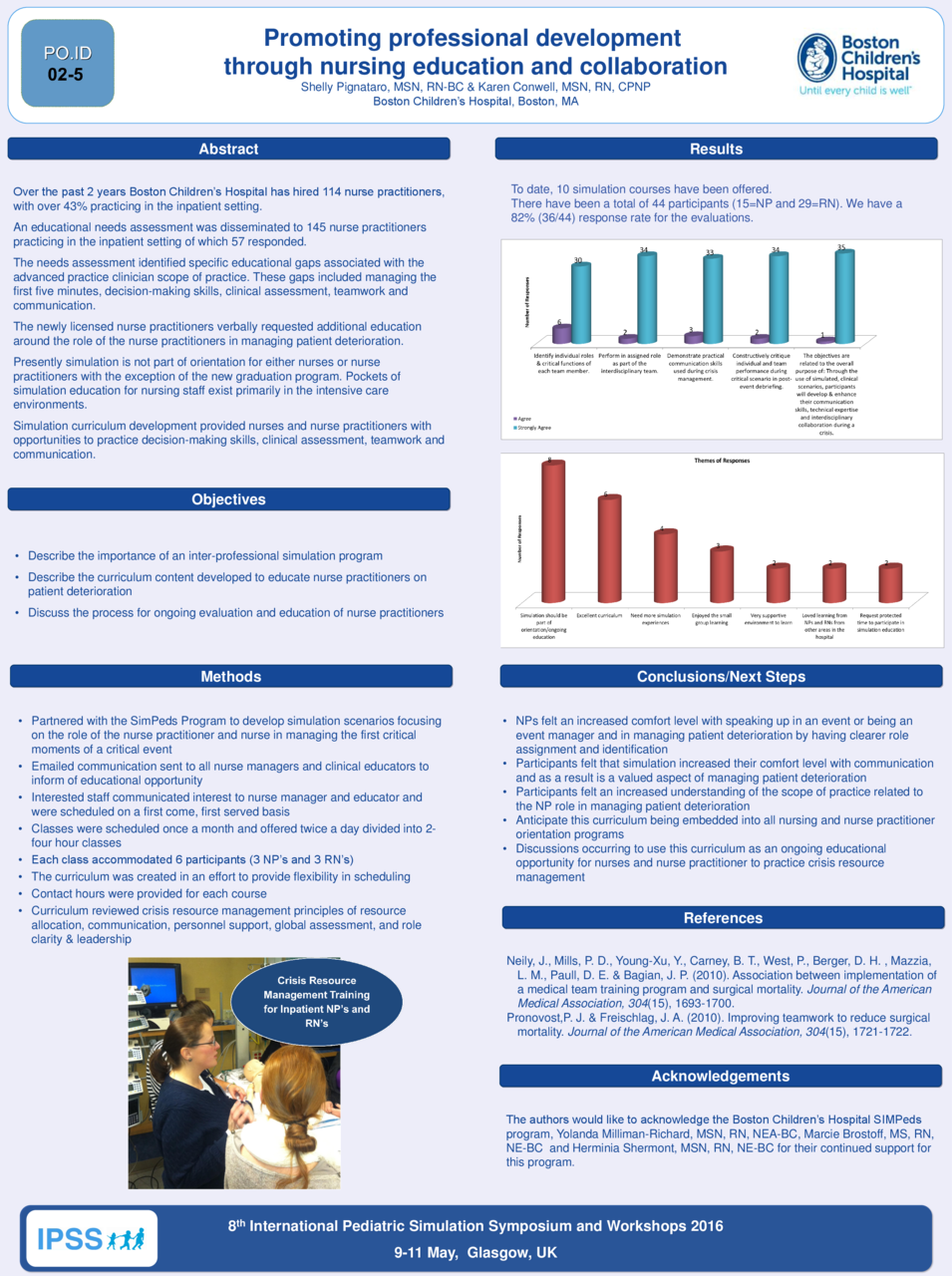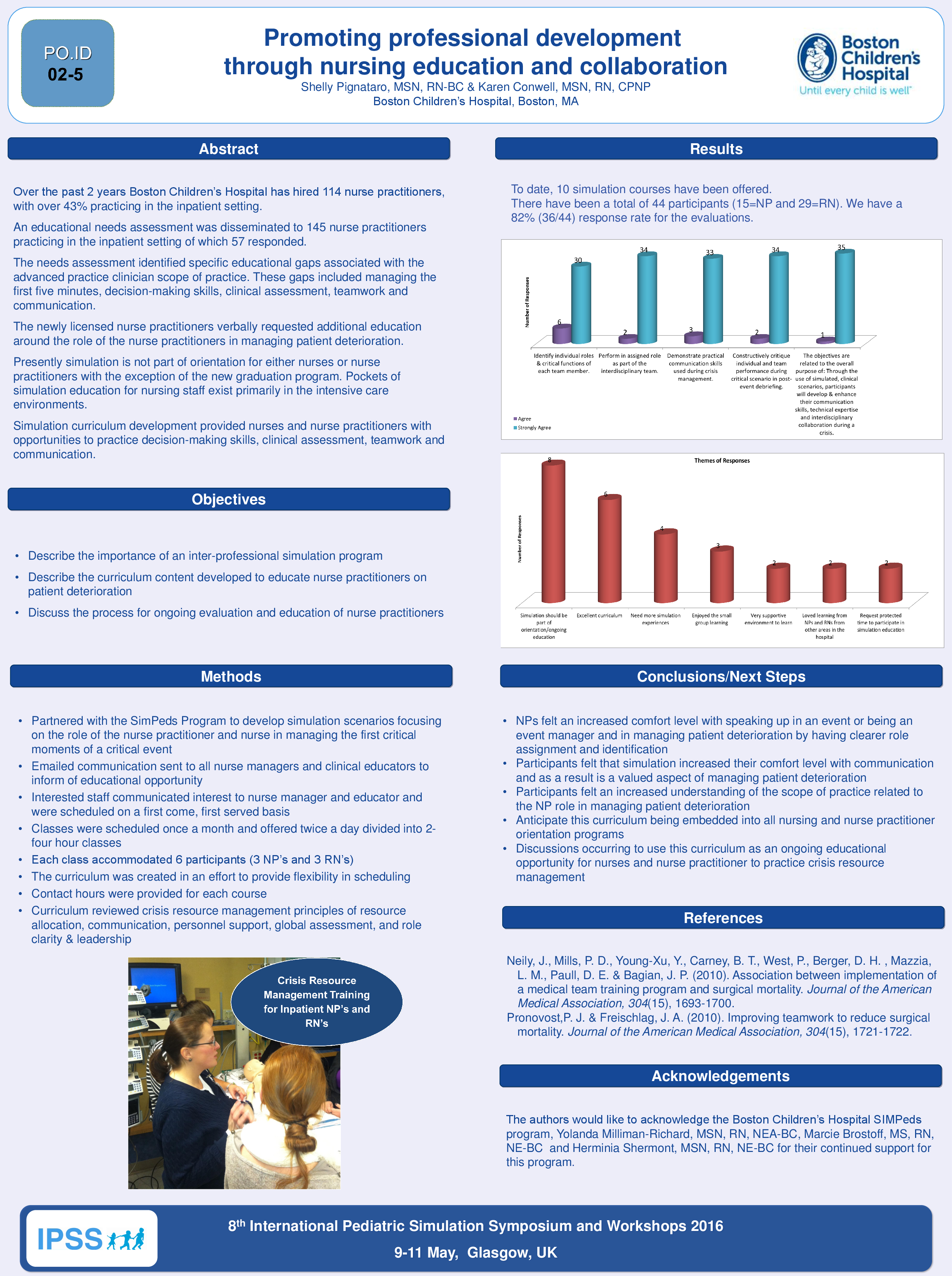Abstract
Author(s): Karen Conwell, RN, MSN, CPNP and Shelly Pignataro, MSN, RN-BC
Target Audience: Nurse Practitioners and Nursing Staff, Simulation instructors
Objectives:
-
The learner will be able to describe the importance of an inter-professional simulation program
-
The learner will be able to describe the curriculum content developed to educate nurse practitioners on patient deterioration
-
The learner will be able to discuss the process for ongoing evaluation and education of nurse practitioners
Impact/Significance of Topic: Over the past 2 years we have hired over 114 nurse practitioners, with over 43% practicing in the inpatient setting. We identified the need for additional education to support the role of the nurse practitioners in managing patient deterioration in a complex acute care pediatric environment. An educational needs assessment was disseminated to 145 nurse practitioners practicing in the inpatient setting of which 57 responded. Through analysis of the needs assessment, we identified specific educational gaps associated with the advanced practice clinician scope of practice specifically related to managing the first five minutes of a critical clinical event including, decision-making skills, clinical assessment, teamwork and communication.
Key Points: Over the past several years there has been an increased number of nurse practitioners (NP’s) hired to support inpatient nursing care resulting in several care services moving to a 24/7 model of NP coverage. The hospital and its governing bodies delineate patient deterioration management to be under the scope of NP practice. However, educational preparation for NP’s often is limited regarding the role of NP’s in patient deterioration. Additionally, over 45% of NP’s hired had less than 5 years of experience as an NP. In March of 2015 an educational needs assessment administered to both non-ICU inpatient nurses and NPs identified the need for a collaborative educational simulation specifically around the role of event manager. Nurse educators from in patient units and central clinical education collaborated with the hospital simulation program to develop a hospital wide inpatient simulation curriculum aimed at emphasizing the role of the NP in a patient deterioration situation. Through this simulation curriculum, which highlights the importance of the first five minutes, NP’s are provided with opportunity to practice decision-making skills, clinical assessment, teamwork and communication. NPs and nurses provided feedback which included an increased understanding of the scope of practice related to the NP role in managing patient deterioration. Additionally, NP’s felt an increased comfort level with speaking up in an event or being an event manager and in managing patient deterioration by having clearer role assignment and identification. Participants also felt that the simulation experience increased their overall comfort level with communication between team members and as a result is a valued aspect of managing patient deterioration.
References:
Neily, J., Mills, P. D., Young-Xu, Y., Carney, B. T., West, P., Berger, D. H. , Mazzia, L. M., Paull, D. E. & Bagian, J. P. (2010). Association between implementation of a medical team training program and surgical mortality. Journal of the American Medical Association, 304(15), 1693-1700.
Pronovost,P. J. & Freischlag, J. A. (2010). Improving teamwork to reduce surgical mortality. Journal of the American Medical Association, 304(15), 1721-1722.






